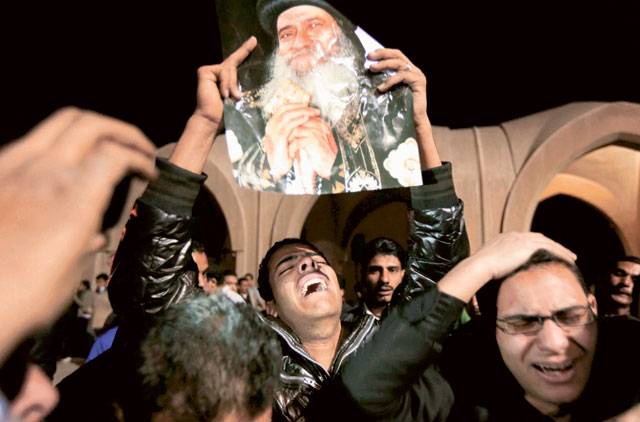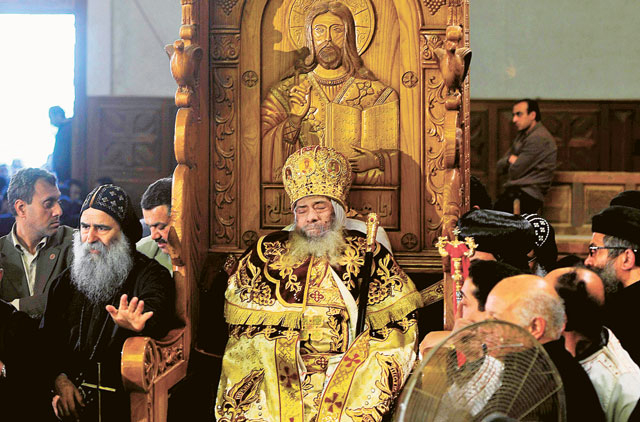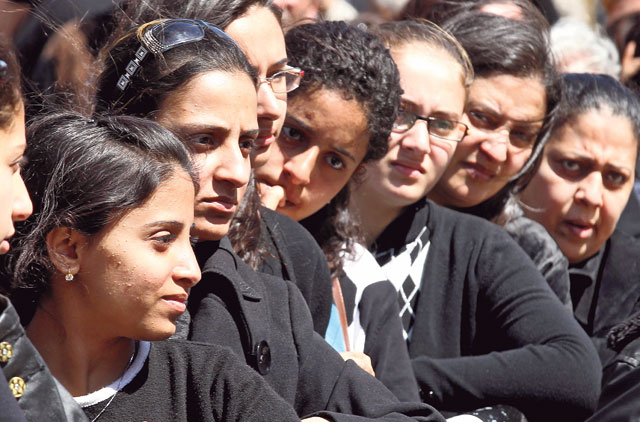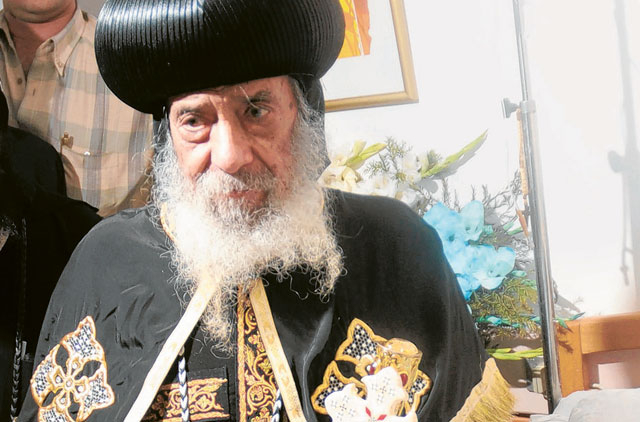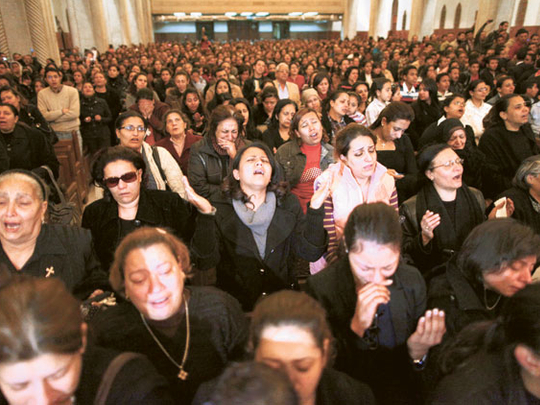
Cairo: Milad Carlos, 20, has been joining thousands of Coptic Christians since Saturday night in a vigil for Pope Shenouda, who died at the age of 88. Carlos feels devastated at the pre-eminent pontiff's departure.
"To us, the Copts, Pope Shenouda was like a caring father. He always protected his people," he said, as he emerged from the St Mark Cathedral in Cairo where the body of Shenouda is laid in an open casket for two days before his burial tomorrow.
Shenouda led the Coptic Church, which represents the largest Christian minority in the Middle East, for more than four decades. "Although I am still young, I heard great stories about [how] the Pope stood up to [late Egyptian president Anwar] Sadat when he unleashed extremists to prosecute Christians in their country," said Carlos as he supported his father who was overwhelmed by grief. "We need a strong-willed pope like him," he added.
"I am not sure what lies ahead for us particularly at this time when Islamists are gaining ground in Egypt," said Carlos, a law student.
A popular revolt, which removed long-standing president Hosni Mubarak from power last year, has propelled Islamists onto the centre-stage of Egypt's politics. Islamists won more than two-thirds of parliamentary seats in recent elections. They are also expected to have a strong say in writing a new constitution that will define the identity of the predominantly Muslim country.
Alleged persecution
Islamists' growing clout has raised fears among the Christians who account for around 10 per cent of Egypt's 80 million people. "Several of my friends and their families have already left the country for fear of the future. But I won't do this because this is my homeland, come what may," added Carlos.
Egypt's Christians have long complained about alleged persecution from the state authorities and the Muslim majority. Their hope for a better future in the post-Mubarak Egypt has been dimmed due to the turbulence that followed his removal.
Last October, 27 people, mainly Christian protesters, were killed in clashes outside the state television building in Cairo with army troops. The killings have brought the junta, who took over from Mubarak, under heavy criticism. Meanwhile, the number of Christian lawmakers in the recently elected parliament is around 10.
"The Christians' worries about the future are legitimate. But these worries should be viewed within the context of the state of uncertainty that grips the whole Egyptians," said Shawki Safwat, a political analyst. "Despite the much talk about democracy in Egypt nowadays, it will be long before principles of equal citizenship and tolerance take root in Egypt," he added.
According to Safwat, Islamists, mainly the Muslim Brotherhood who holds nearly half of the parliament, have yet to "act in a manner that will reassure all the Egyptians about their future".
Safwat, however, believes that the expectedly prolonged process of selecting a new pope adds to Egyptian Christians' apprehensions. "Shenouda himself officially became a pope almost eight months after the death of his predecessor," said Safwat. "In addition, Shenouda passed away with Egypt having no president yet."
Tolerance and wisdom
However, Tharwat Bassily, a senior church official, rules out problems in selecting a successor to Shenouda.
"Succession regulations are clear, although the process is likely to take long," he said.
"But even if a new pope is selected before a new president is inaugurated in Egypt, the [ruling] Supreme Council of the Supreme Forces has the power to officially confirm his election," he added.
Meanwhile, Egyptian and world leaders mourned the death of the pope, as a man of tolerance and wisdom who helped Egypt keep united.
"His death is a tragedy and a great loss for Egypt and its people of Muslims and Christians," Ali Juma, the Mufti of Egypt, said in a statement.


